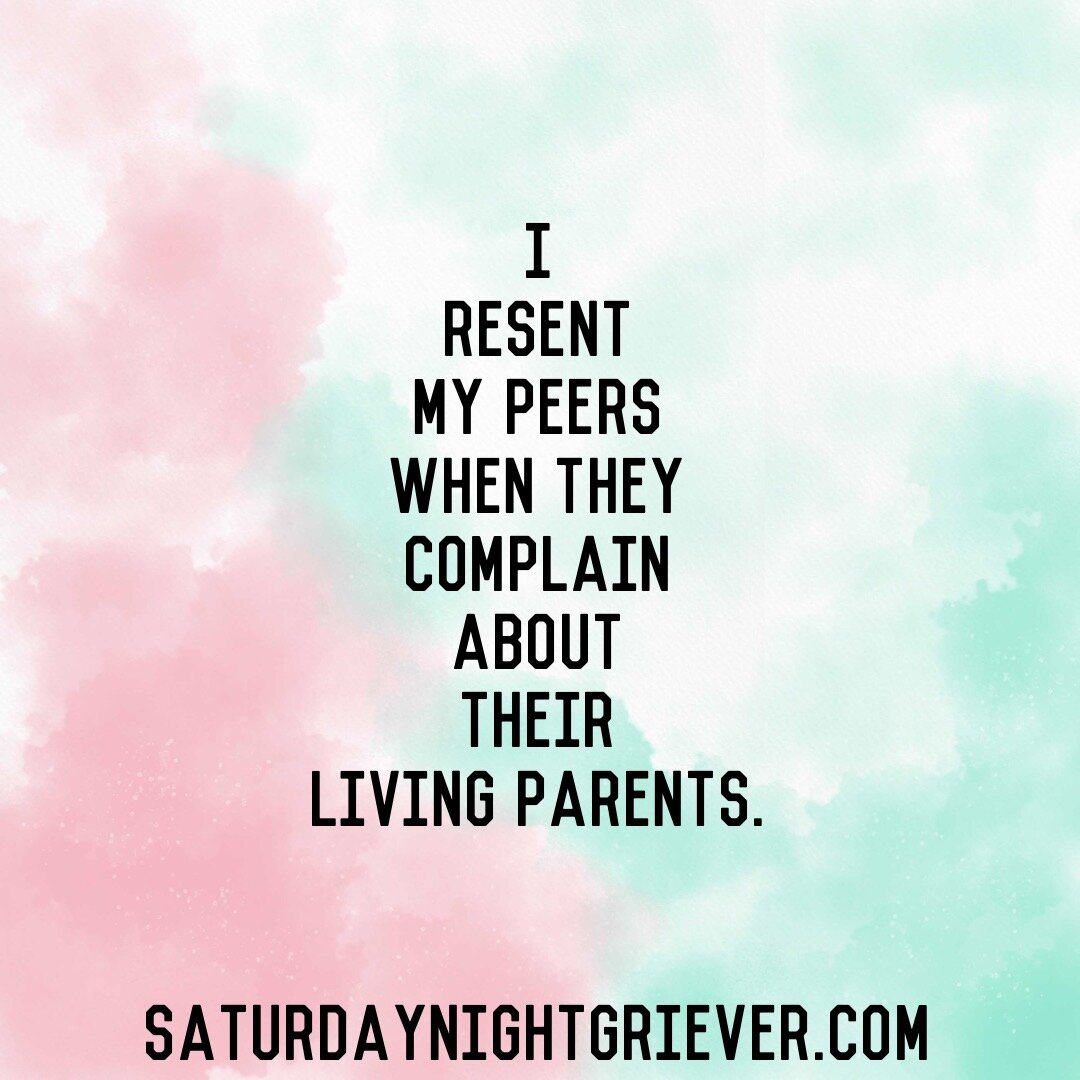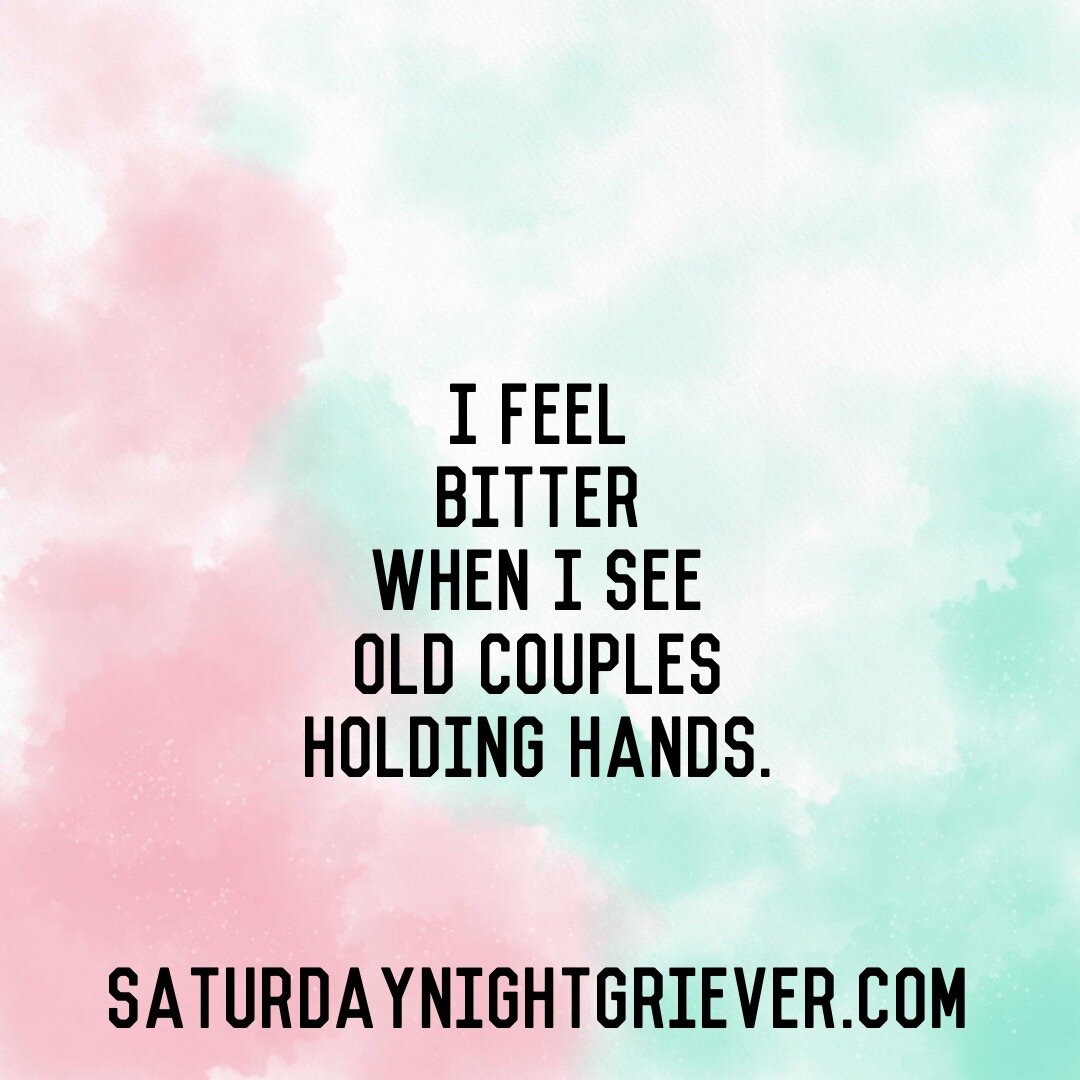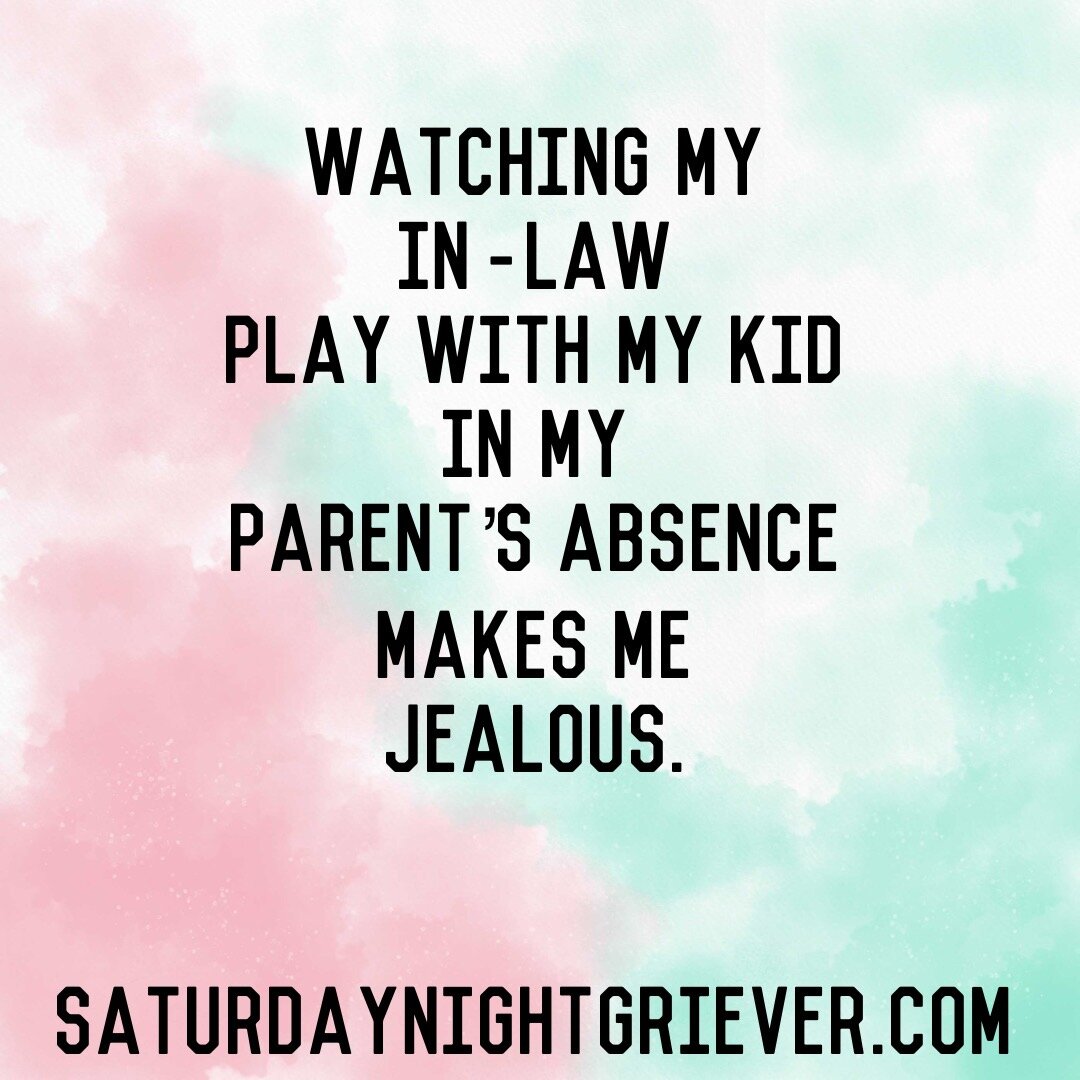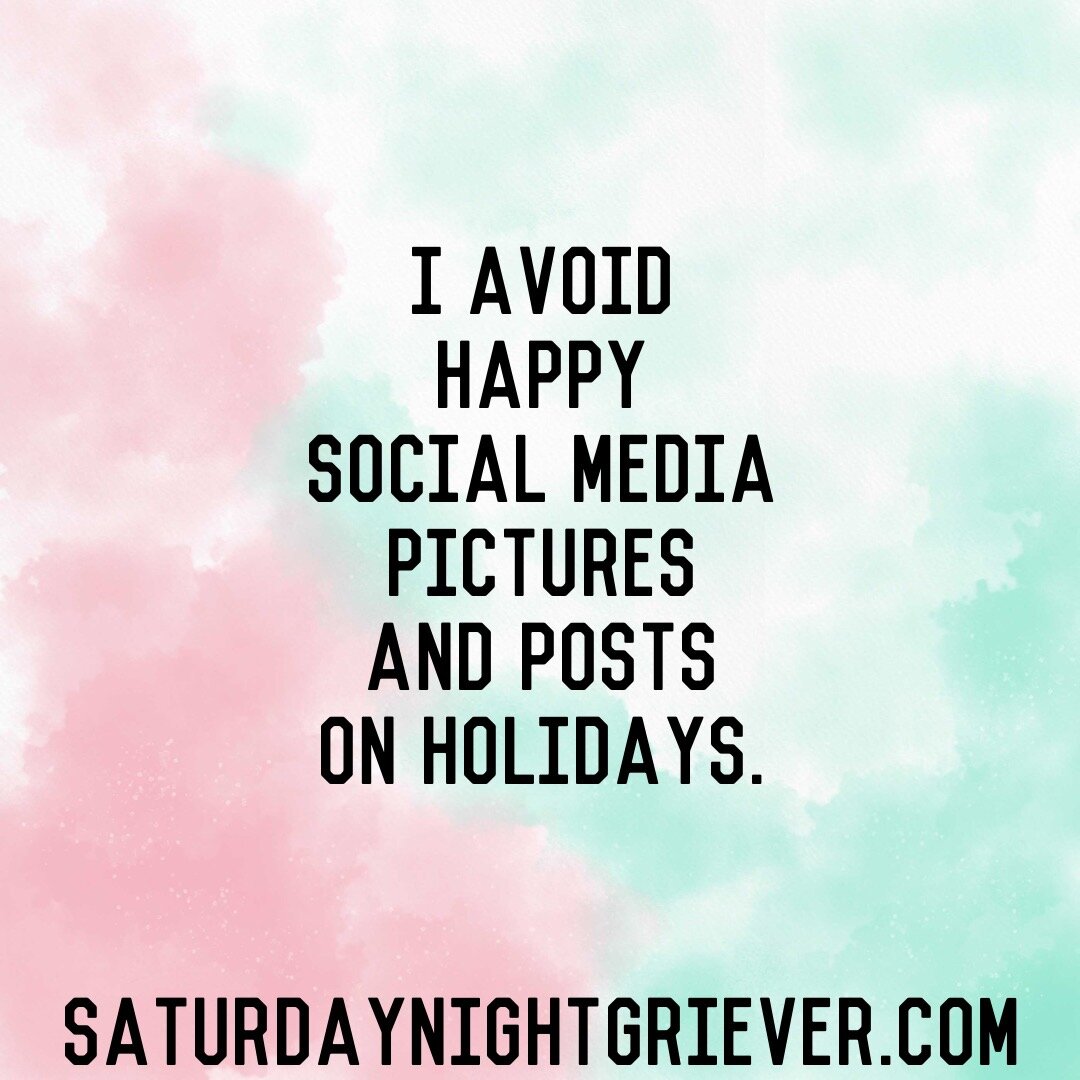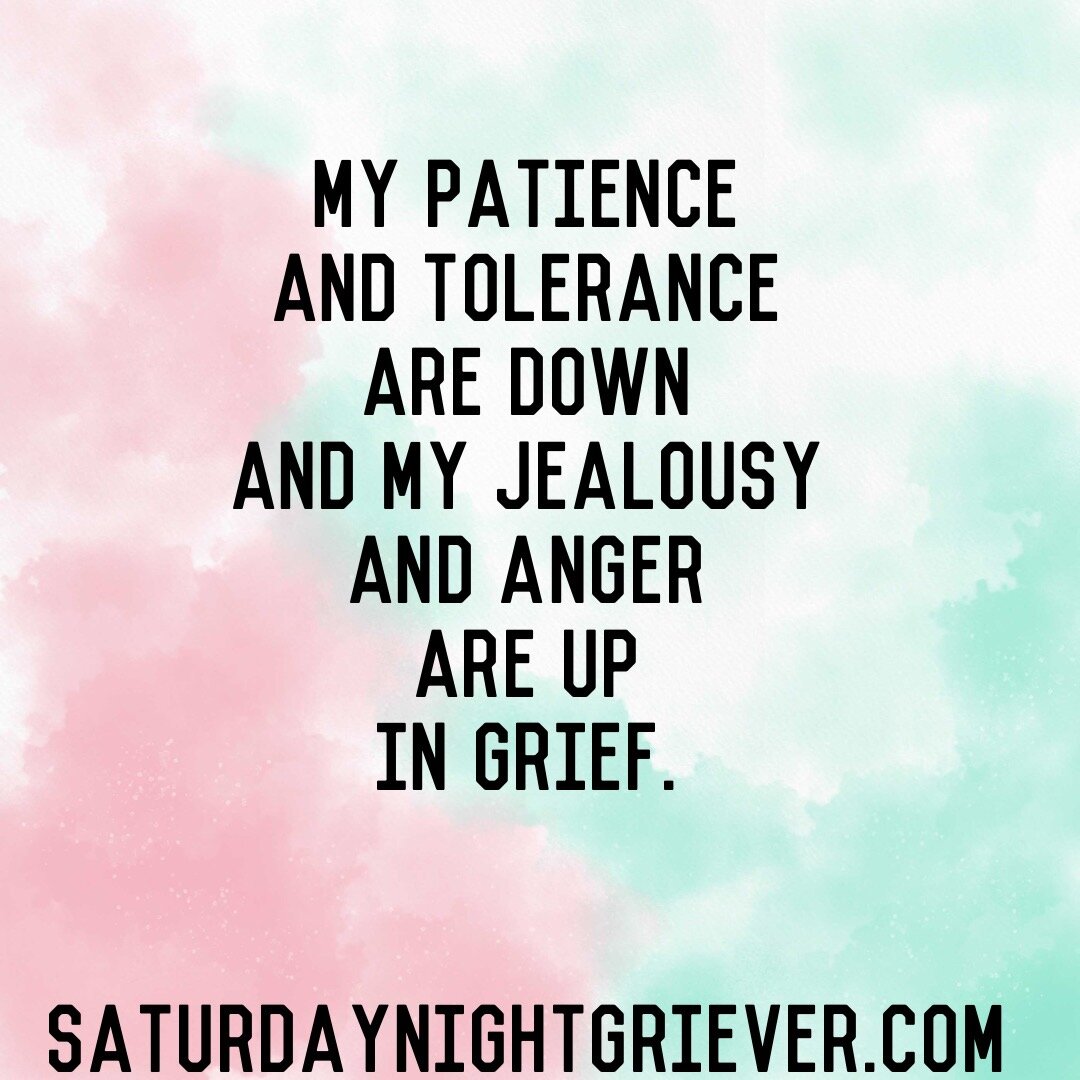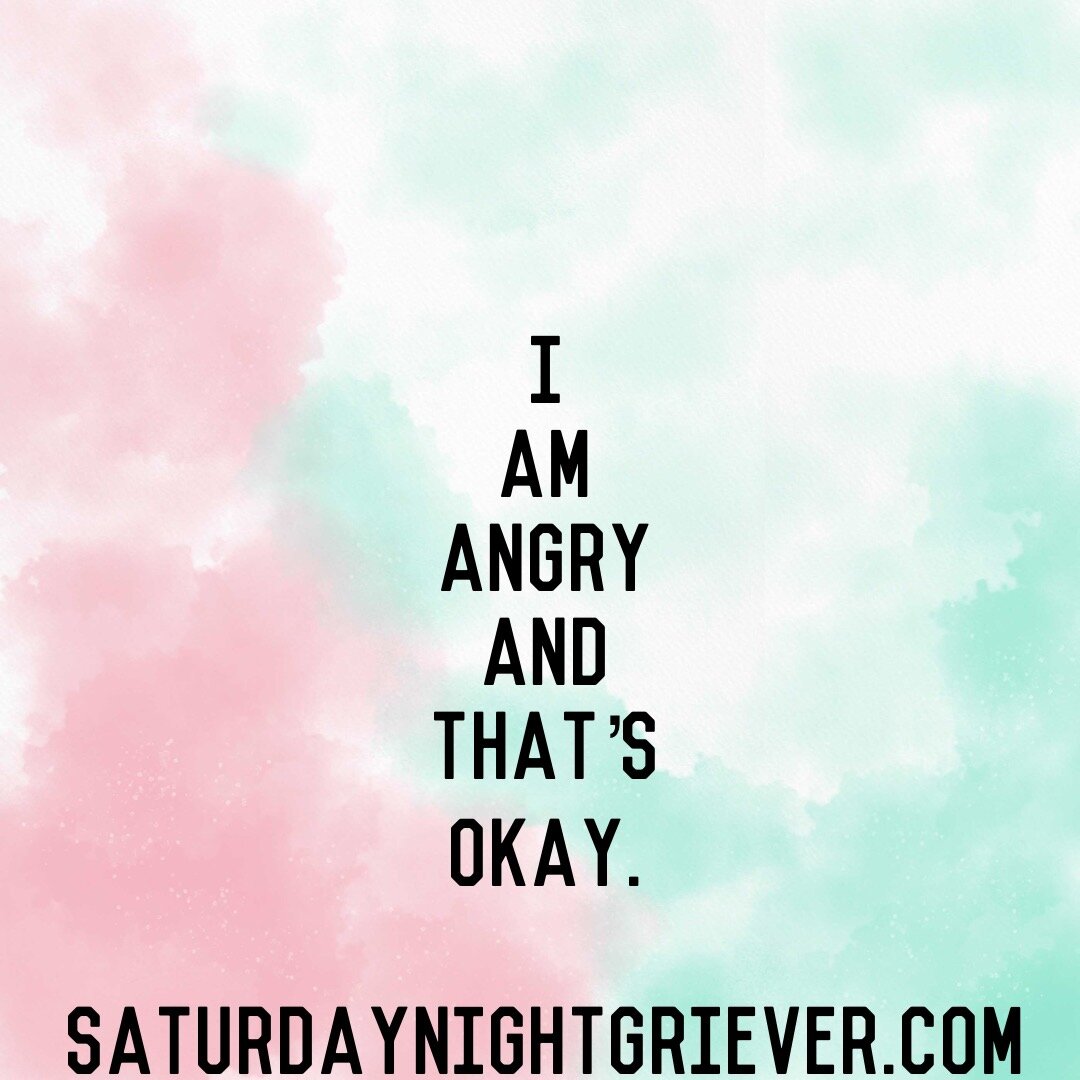Over the past sixteen months, I’ve spent a lot of time talking to people whose grieving situations are similar to my own —people in their thirties (give or take), people who are new(ish) parents, people who have lost their own parent(s). Most of the conversations I’ve had took place in confidence in the context of grief groups, online support groups, or similar communities. Because of their confidential nature I will never share any detail from a specific talk I had unless it was a detail from my own life. What I can share, though, after being a part of so many of these talks, is a general pattern that I’ve seen emerge for people whose grieving situations are similar to my own, including me.
That pattern is this: There are a lot of us out there who are experiencing anger, jealousy, bitterness, resentment, and other similar emotions as a result of our grief. We resent our peers when we hear them complaining about their living parents. We feel unexpected jolts of bitterness when we see old couples holding hands. The jealousy we feel when watching our in-laws play with our grandchildren in the absence of our own parents is almost unbearable. Social media is a minefield for many of us — it’s bad on any given Thursday but Code Holy Shit Get Me Outta Here on holidays when the happy family pictures and posts are relentless. And if asked to describe the most consistent emotion that defines our grief, many of us would opt not for the expected Sadness or Longing but for the just-the-facts-Jack-flaming-hot ANGER.
Maybe you think: Well, yes of course you’re angry that your parent died. That seems understandable. But that’s not the kind of anger I’m referring to. I’m referring to the type of anger where many of us who were previously compassionate, patient, calm people now feel balls of absolute rage in our chest when our spouse doesn’t empty the dishwasher, when our kid doesn’t follow directions, or when the stranger in front of us in line can’t decide what to order. The amount of tolerance we have for small-talk party conversations may be zero. Hearing someone complain about trivial issues produces a response in us that most of polite society would refer to as “unkind.” We are so angry.
This isn’t the pretty side of grief. The pretty side, if there is one, is the sad, lonely, fragile part: the part where you cannot help but feel compassion for this person who lost so much. This is the grittier, grosser, grimier side of grief. It’s a side that’s rarely talked about in public but let me assure you, it is the side that is coming up over and over again when in the safety of our own people. It’s not “nice” to say aloud some of the things that absolutely need to be said, so many of us don’t, or we do only in whispered tones, and only to people we trust won’t crucify us.
Personally, I think we should talk about it more and we should talk about it louder and we should talk about it so much that the next time someone who is grieving finds herself experiencing these intense emotions, instead of feeling completely caught off guard and as if she’s the first and only person to ever experience such complicated, misunderstood emotions and feels icky as a result, she instead says, Oh yeah, I read about this. I heard about this. So-And-So told me about this. It is a fact of grief for many, many people and it is OKAY and normal and does not make me a terrible person.
It is not bad, terrible or wrong to feel anger, jealousy, bitterness, resentment or other similar emotions as a result of your grief. It is so, so, so normal and in fact, I’m trying to rack my brain to think of a grieving person I know who hasn’t experienced it in some form.
My name is Kristen and since my dad died, I have felt very angry, jealous, bitter and resentful. And so have so many of the people I’ve talked to in similar situations. And maybe you have too. And that’s okay.
In grief and with love,
KrissyMick
Photo Credits, All: Kristen Forbes

